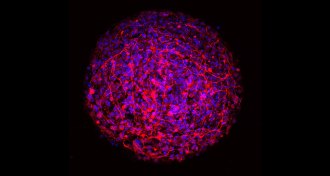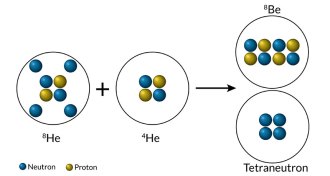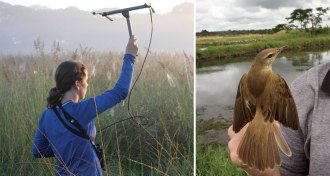News in Brief
-
 Neuroscience
NeuroscienceTiny bare-bones brains made in lab dishes
A reliable way to make standard-issue minibrains could help scientists study the human brain.
-
 Astronomy
AstronomyPlanets may emerge from stellar duo gathering icy dust
Gas freezing onto dust grains around a binary star could be setting up a site where comets or even planets might someday form.
-
 Microbes
MicrobesMicrobe mix varies by kind of home
Urban homes hold more human-associated bacteria compared with rural homes. Subdivided houses with lots of rooms and poor ventilation could be to blame.
By Meghan Rosen -
 Earth
EarthNew app puts an earthquake detector in your pocket
Smartphone app MyShake uses motion-sensing accelerometers to detect nearby quakes. The app could provide early warnings of incoming tremors, its creators say.
-
 Environment
EnvironmentUrban heat islands exist even in the Arctic
Arctic cities are a source of warming in the far north. Unlike midlatitude heat islands, poorly insulated buildings — not the sun — are a primary source.
By Janet Raloff -
 Particle Physics
Particle PhysicsPhysicists find signs of four-neutron nucleus
Strong evidence of a tetraneutron, an atomic nucleus with four neutrons but no protons, defies physicists’ theoretical expectations.
By Andrew Grant -
 Neuroscience
NeuroscienceCancer drug’s usefulness against Alzheimer’s disputed
A preliminary report questions the anti-Alzheimer’s activity of a cancer-fighting drug.
-
 Animals
AnimalsWhy some birds sing elaborate songs in the winter
Several obvious hypotheses fail to explain why great reed warblers sing in winter.
By Susan Milius -
 Astronomy
AstronomyLargest rocky world found
A planet roughly half the size of Neptune might be 100 percent rock, making it the largest known rocky world.
-
 Genetics
GeneticsDNA may determine if you’re an early bird or night owl
Morning people are more likely to have certain variations in their DNA, but less likely to have insomnia or sleep apnea.
-
 Tech
TechMachine triumphs in strategy game
For the first time, a computer has beat a professional human player in the strategy game Go.
By Meghan Rosen -
 Animals
AnimalsTegu lizards warm up for mating
Despite their cold-blooded reputation, tegu lizards boost their body heat while on the prowl for a mate, biologists report online January 22 in Science Advances.